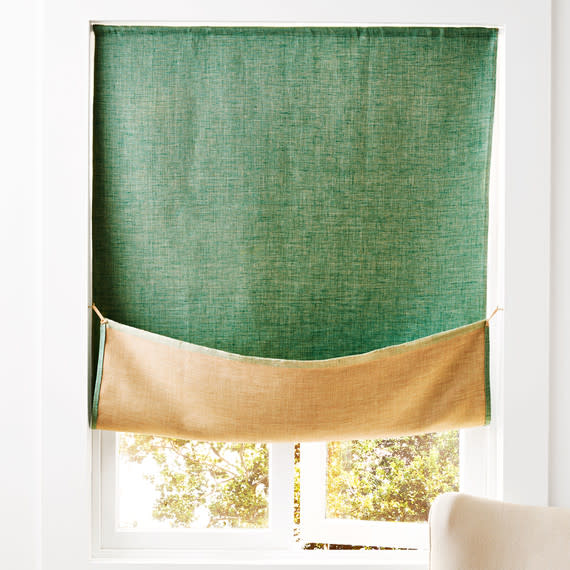Here's How to Soundproof Your Windows

Whether you struggle to sleep at night or you can't hear your TV over the din that's eking in from outside, you know your windows are letting in a lot of noise. And while replacing low-quality windows with soundproof ones may seem like an obvious answer to your problem, not everyone can swap windows on a whim. (We're looking at you, renters!) Even if you can't replace your windows, there are many things you can do to diminish the amount of sound they let in. "Sound is the movement of air, so anywhere air can get in your home, noise can get in, too," Kristina Damschen Spina, vice president of marketing for Indow, explains. "Once these vibrations enter your space, they reverberate or absorb. So, to reduce the noise means you need to either stop the sound from traveling into your home in the first place—or help absorb the sound so it echoes and reflects less once in your room." Here are four expert ways to soundproof your windows without replacing them.
RELATED: Shade and Curtain Projects to Personalize Your Windows
Add Weather Stripping
"Think of noise coming into your home like water through a leaky bathtub," says Spina. "To seal up airflow means you stop the way in which noise travels." In the case of windows, that might mean adding weather stripping to the edges, where air is likely to leak in. (Weather stripping comes in easy-to-adhere rolls of thin foam, most with adhesive already applied.) Spina recommends that—rather than applying weather stripping to every window—you "take some time to walk through each room and note where noise could be coming in. If you can, play a radio outside while walking through the rooms to help determine points of entry." Then, only apply weather stripping where it's most needed, saving money and time.
Hang Soundproof Curtains
If you'd like to improve the look of your windows as well as their function, then consider adding soundproof curtains to your space, recommends Brad Roberson, president of Glass Doctor. "Soundproof curtains are a better-looking solution for blocking out the noise," he says. "They are not as effective as dedicated barriers, but they're easily installed and more convenient." Of course, soundproof curtains can be very expense. Luckily, you can mimic their effects without the hefty price tag by simply buying heavy curtains, Roberson says.
Install an Acoustic Window Insert
"Window inserts are an alternative to window replacement that reduce noise and save on energy," explains Spina. And while the word "insert" might lead you to picture a complex installation process, some of these barriers can be installed with no hardware, and cause no destruction to the window itself, Spina says. However, window inserts can be costly: They average about $36 per square foot, says Spina. So, "they are an investment in your space and more common for those planning to be within the space for a few years," she says.
Absorb Sound with Other Fabrics
There's an option that will reduce sound in your home without touching the windows: "By putting plush rugs with rug pads in your space, wall hangings, and even plants," you can minimize the effect of sound in your space, says Spina. Decorative acoustic panels—panels that can diminish sound when hung on the wall—are another great option, Spina says. "You do not have to cover up your entire wall to achieve absorption," she says. "Instead, consider adding strategic breaks across large surfaces to cut up the distance sound waves can travel. And, "corners in rooms are also more susceptible to reverberation," Spina adds, therefore, corners "are areas you'll want to ensure you have softer materials that absorb the noise."
